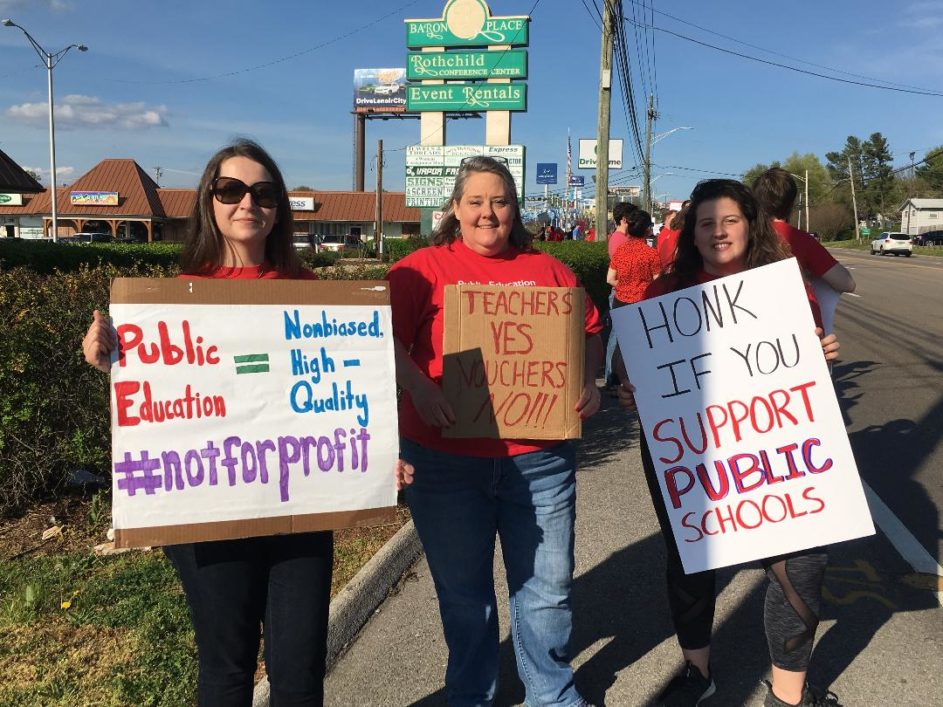It wasn’t that long ago that Knox County was showing older teachers the door. New blood was needed to cope with the Technology Age – computers and rubrics and endless rounds of high-stakes tests (or so we were told).
The cynical among us couldn’t help suspecting that it was also a cost-cutting measure. Mo’ experience = mo’ money, and malleable young teachers straight out of college work cheaper than experienced ones.
Last week, however, thanks to a story by Josh Flory in KnoxTNToday and on his blog Hall Pass, we learned (most of us for the first time) that our school system is inviting retired teachers to return to the classroom, and offering hefty financial incentives to entice them back to work. It was a happy story about a teacher who is thrilled to return.
But it was an acknowledgement that the teacher shortage is real.
A new, poorly understood law clamping down on school library content is the latest in teacher-disrespecting measures. “Clarifying” guidelines handed down by Commissioner of Education Penny Schwinn make it clear that teacher-provided classroom libraries are subject to the same rules as school libraries – and all books must be scrutinized and catalogued to make sure that students aren’t exposed to anything inappropriate. And since many conscientious teachers have put together huge collections of books for their students – mostly at their own expense and entirely on their own time – this exercise will be time-consuming and burdensome.

KCS has asked for a reprieve until next spring to give them time to figure out how to comply without unduly burdening teachers.
I asked a principal (whose name I will protect) about this new law, and she (in an abundance of tact, even though I’d offered her anonymity) started out by crediting “our state leaders” with wanting to make sure that kids learned to read by the time they are third graders:
“However, many students in our community have limited resources and do not have access to children’s literature in their home. Tennessee teachers receive only $200 per year from the state to purchase supplies for their classrooms so many classroom libraries are funded with teachers’ personal funds. The new requirement from the state to catalog all trade books in the classroom is another barrier for teachers and ultimately a barrier for students to have access to literature. Classrooms contain hundreds of books, and this new law will cause teachers to spend an inordinate amount of time cataloging books.
“That time would be better spent planning high quality instruction. As a school administrator, I am hopeful that teachers will not respond to this additional burden by removing their classroom libraries. We are actively looking for ways in which volunteers from the community can assist our teachers with this task.”
For the sake of the teachers and the kids, I hope the volunteer spirit prevails.
But meanwhile, another source close to Knox County Schools said that although KCS job recruiters are working hard to remedy the teacher shortage, they are meeting with considerable resistance:
“We’ve got people downtown calling retirees and asking them if they’ll consider coming back to work and they’re being told, ‘No way.’”
This is my shocked face (you’ll have to trust me on this) upon hearing that in the wake of a long trail of anti-teacher measures created by two GOP-dominated state administrations that started stripping teachers of tenure and collective bargaining rights, seasoned educators are declining lucrative offers to return to the classroom.
Post Scriptum: This new law is easily confused (by me, at least) with the Age-Appropriate Materials Act of 2022, a school library censorship bill whose sponsor made national news by advocating book-burning.
Betty Bean writes a Thursday opinion column for KnoxTNToday.com.

